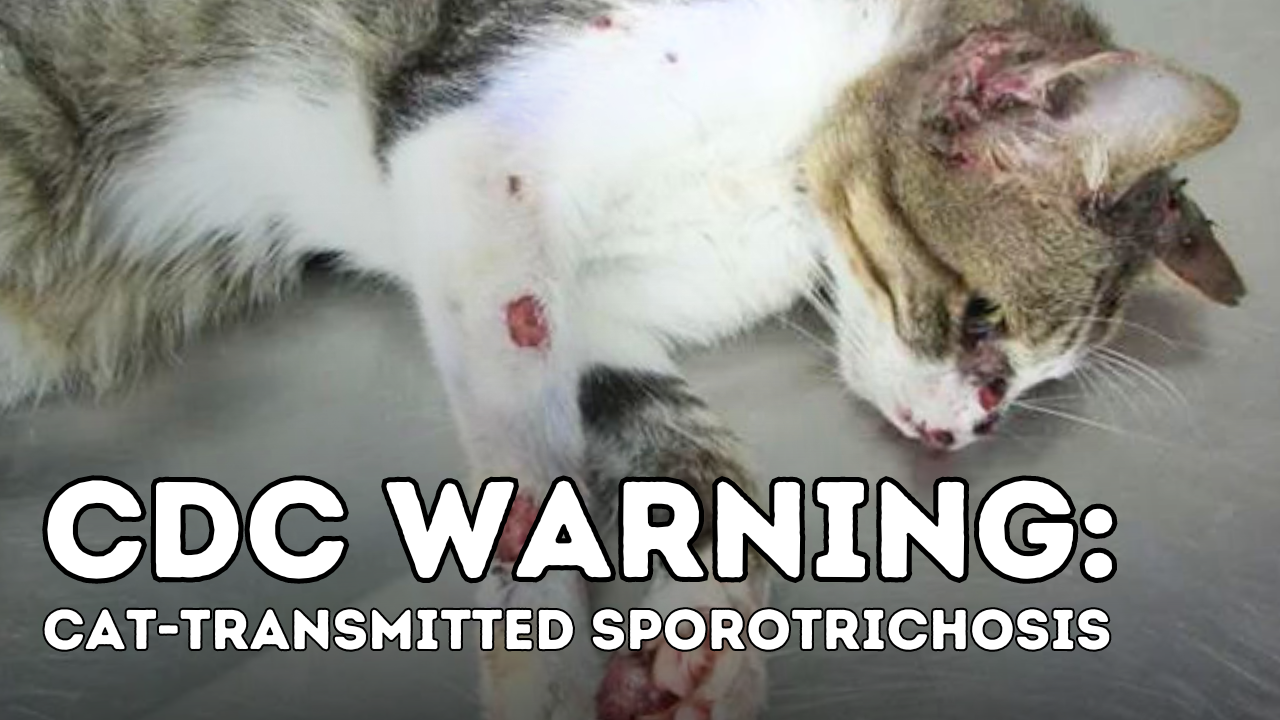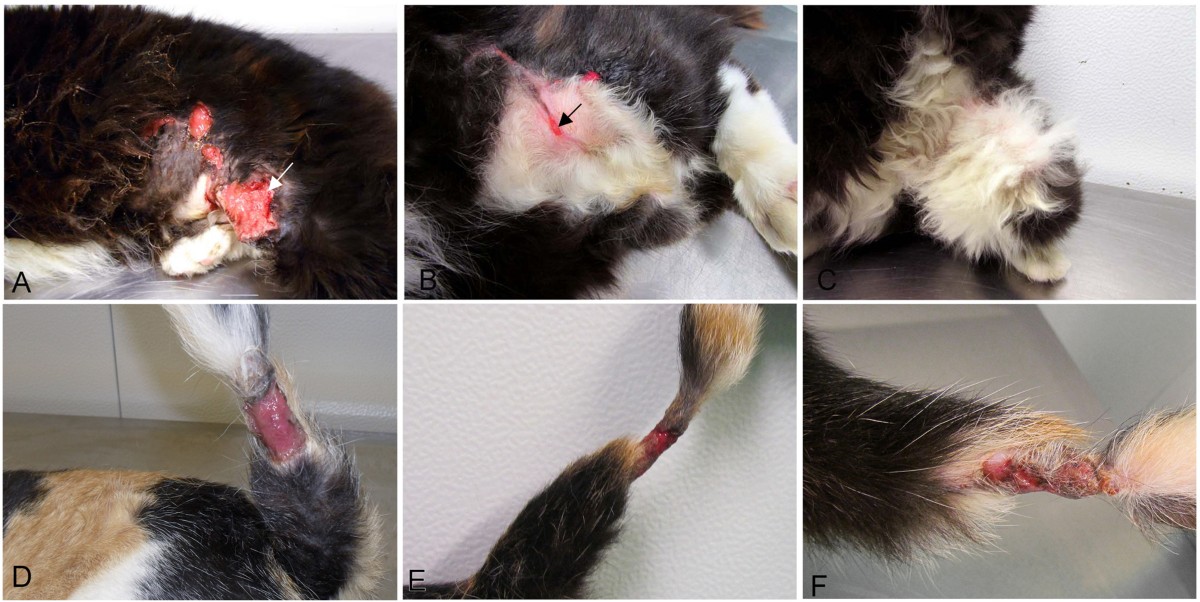CDC warning over cat-transmitted sporotrichosis (affecting cats/dogs/people)

Emerging diseases freak me out a bit… but fortunately regardless of the disease, the chance your cat/dog/you will ever contract it is miniscule.
In fact it’s the more common diseases we should be more concerned about, such as Chronic Kidney disease, Feline Lower Urinary Tract Disease. There are specific nutritional ways that you may be able to help your cat, such as lowering the phosphorus for Kidney disease, or adding in Glucosamine/Chondroitin for Urinary Tract Disease.
Our Supplement has ingredients designed to help those conditions:
Keep Your Cat Thriving with Dr. Jones’ Ultimate Feline Health Formula
Dr Jones’ Ultimate Feline Health Formula


CDC Issues Warning Over Cat-Transmitted Sporotrichosis: What You Need to Know
The Centers for Disease Control and Prevention (CDC) recently held a teleconference where they issued an alarming update regarding a zoonotic epidemic on the rise—cat-transmitted sporotrichosis. Originating in Brazil, this disease has quickly become a major public health threat, with potential implications for cats, veterinarians, and pet parents alike.
Potential Threat to the U.S.
During the CDC’s Zoonoses & One Health Updates Call, Ian Hennessee, PhD, an epidemic intelligence service officer in the Mycotic Diseases Branch, expressed concern about the potential for this disease to spread to the United States.
“Cat-transmitted sporotrichosis is certainly a concern for the United States," Hennessee said. “Its establishment would be a threat to stray and domestic cat populations and also a risk to veterinarians and cat owners.”
The spread of the disease in the U.S. could impact not only stray and domestic cats but also veterinarians and pet owners, putting everyone who comes into contact with infected cats at risk.
How the Disease Spreads
According to a release from the American Veterinary Medical Association (AVMA), cats are known carriers of Sporothrix brasiliensis, a fungus that can easily spread from cat to cat, and subsequently from cats to humans—and possibly even dogs. This particular strain has been identified as a significant cause of sporotrichosis, especially in tropical and subtropical regions.
Sporotrichosis is caused by a group of fungi from the Sporothrix genus. It was first identified in Brazil in the 1980s, but since then, it has spread across Brazil, Chile, and Argentina.
Symptoms and How It Affects Cats and Humans
The most common manifestation of sporotrichosis is through skin infections. The infection occurs when the fungus enters the skin through a cut or scrape, often through contact with contaminated plant matter.
For cats, lesions typically appear on their face, especially around the nose. These lesions often develop from wounds sustained in fights with infected cats. When an infected cat licks these wounds, the fungi are transferred to other areas of their body, such as the face and mouth.
In humans, the skin on the hands or arms is usually the most affected, as these areas are most likely to come into contact with infected material.
Discover Dr. Jones’ All-Natural Pet Supplements – Holistic Solutions for Thriving Pets. Shop Now for Optimal Wellness!
Dr. Jones’ All-Natural Pet Shop for Dogs and Cats

What You Should Do
Hennessee urges veterinary professionals to notify their local health departments if they encounter suspected cases of cat-transmitted sporotrichosis or notice unusual trends. Early reporting is essential to tracking and preventing the spread of this zoonotic threat.
A Personal Note to My Readers
It’s very concerning that this disease can be transmitted not only to people but potentially to dogs as well. I’ll keep you updated as more information becomes available, but for now, be vigilant if you notice any unusual lesions or symptoms in your cat.
P.S. About My Cat Supplement
If you’re looking for ways to support your cat’s health, especially if you’re concerned about inflammation or bladder health, I recommend trying my ULTIMATE Feline Health Formula. This supplement contains Glucosamine and Chondroitin, which may help reduce bladder inflammation, as well as lower phosphorus levels, which may benefit cats with FLUTD.
Stay informed, and stay safe.
